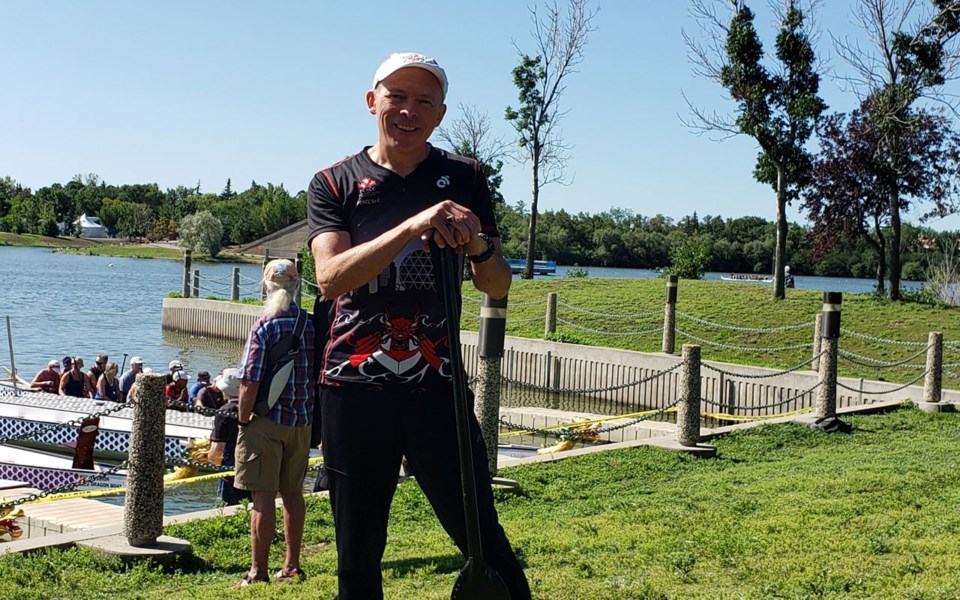If you think knowing the coach was a leg up for Pemberton's Scott McLagan to make the Senior C National dragon boat team, you'd be wrong.
In fact, that Kamini Jain was both his False Creek Racing Canoe Club (FCRCC) coach, as well as a co-coach on the national team was perhaps a bit of an added challenge.
"To tell you the truth, my main competition and my main rivals to get on the team were my fellow FCRCC team members," McLagan said with a chuckle. "Just about everyone that applied from elsewhere in Canada actually made it on the team. The team has to be seen as representing from across Canada."
After submitting fitness tests and jockeying for position in a pair of camps, McLagan was named to the team and will compete at the International Dragon Boat Federation World Championships in Pattaya, Thailand from Aug. 20 to 25.
With FCRCC, McLagan recently competed in Regina at nationals with the team, where it won gold in the senior 'C' mixed category.
"They're a very competitive club, a very competitive bunch of people and they've got an extremely competitive coach," he said.
McLagan, who paddled in Pemberton for several years under Hugh Fisher and Karen Tomlinson, originally joined FCRCC to extend his paddling season all year long as opposed to finishing in October.
"I joined them just so I could paddle throughout December and January. I went down every weekend," he said.
With the club, he met Jain, a world champion in outrigger canoe and two-time Olympian who has subsequently earned her stripes coaching. McLagan is especially impressed with Jain considering that at the high level at which his team competes, an excellent coach can make all the difference.
"It's not really athlete-to-athlete competition. It's coach-to-coach competition," he said.
As a smaller guy on the team, McLagan is placed in either the front or back while the larger people (or "wrecking balls") are in the middle where the boat is wider, which helps to stabilize the boat.
McLagan added that he has experience in Seat 1, also known as the stroke seat, which is occupied by the de facto team captain.
"You're in charge of setting the stroke rate, team strategy, that sort of stuff, over the course of the heat," he said.
Describing bringing together team members from across the country as "smooth as silk," McLagan feels confident heading to Southeast Asia. The most difficult element will be getting acclimatized to the weather conditions, especially as local weather has given B.C. athletes little heat in which to adapt.
"The biggest challenge will be heat and humidity," he said. "In British Columbia this year, it's the coolest summer that I can remember. It'll be really tough on the body to land in 100-per-cent humidity and 35-degree temperatures.
"All I can do is just train and when I get there, just get used to it."




